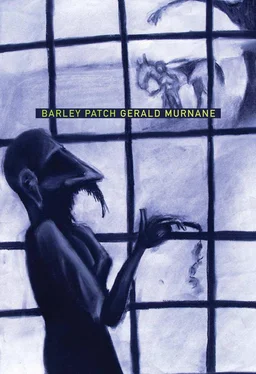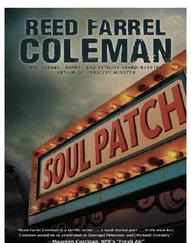Gerald Murnane - Barley Patch
Здесь есть возможность читать онлайн «Gerald Murnane - Barley Patch» весь текст электронной книги совершенно бесплатно (целиком полную версию без сокращений). В некоторых случаях можно слушать аудио, скачать через торрент в формате fb2 и присутствует краткое содержание. Год выпуска: 2011, Издательство: Dalkey Archive Press, Жанр: Современная проза, на английском языке. Описание произведения, (предисловие) а так же отзывы посетителей доступны на портале библиотеки ЛибКат.
- Название:Barley Patch
- Автор:
- Издательство:Dalkey Archive Press
- Жанр:
- Год:2011
- ISBN:нет данных
- Рейтинг книги:5 / 5. Голосов: 1
-
Избранное:Добавить в избранное
- Отзывы:
-
Ваша оценка:
- 100
- 1
- 2
- 3
- 4
- 5
Barley Patch: краткое содержание, описание и аннотация
Предлагаем к чтению аннотацию, описание, краткое содержание или предисловие (зависит от того, что написал сам автор книги «Barley Patch»). Если вы не нашли необходимую информацию о книге — напишите в комментариях, мы постараемся отыскать её.
Barley Patch — читать онлайн бесплатно полную книгу (весь текст) целиком
Ниже представлен текст книги, разбитый по страницам. Система сохранения места последней прочитанной страницы, позволяет с удобством читать онлайн бесплатно книгу «Barley Patch», без необходимости каждый раз заново искать на чём Вы остановились. Поставьте закладку, и сможете в любой момент перейти на страницу, на которой закончили чтение.
Интервал:
Закладка:
Later, while we were talking, a bell sounded, and I understood that the monk was required to go to the chapel and to chant there with the rest of the Cistercian community part of the so-called Divine Office for that day. I expected the monk to leave me in the parlour for the time being, but he invited me to go with him to the chapel. Here was another rule that had been relaxed. As a guest of the monk, I was welcome to stand beside him in the choir stalls and to join in the chanting of the Office. I was thus able, as a married man in his fifties and a non-believer, to walk unchallenged into a place that had been during my youth utterly remote from me: a place where devout and ascetic men closed their eyes in prayer and glimpsed inwardly, perhaps, images of personages or of places or of processes such as I myself might have glimpsed only if I had undertaken several years of study and of prayer. Even the Divine Office was no longer in sonorous and difficult Latin but in English. Much of what I read from the monk’s book and tried to chant was in praise of a god who put to flight his people’s enemies and scattered their encampments.
Afterwards, in the parlour, I asked the monk what sort of mental images the average Cistercian might have seen while he was reciting part of the Office that we had come from reciting. I expected to hear from him that the average monk would see in his mind a series of images seeming to illustrate the passages from Scripture that made up the Office and that a more disciplined or more devout monk might also feel himself closer than usual to one or another divine or canonised personage. The monk replied, however, that the average Cistercian was unlikely to have paid any attention to the words that he chanted and was likely to have used the time in the chapel as an opportunity to meditate in the way that a Buddhist monk might have meditated. The monk then said that he himself had learned a different way of meditating, although he neglected to tell me whence he had learned it. He said that he used his time in the chapel as an opportunity for calling to mind images of what he most desired; of what was most needed to round-out or to complete his mind or his soul; of the missing part of himself. He even said that he had heard or had read somewhere that God might be defined as the object of a person’s most intense longings. And then he described for me the images that most occupied his mind in the chapel. They were images of young female personages. Each personage had blonde hair and wore a tight-fitting evening gown of scarlet or orange or yellow satin that rested low on her breasts. The monk insisted that the images were neither of persons that he had seen in the past nor of persons that he hoped to meet in future; rather, they were images from what he called his spiritual homeland. The monk insisted also that he did not feel towards the personages any sort of sexual desire; instead, he felt towards the personages as though they were his soul-mates.
Some weeks after I had visited the monk, I received from him a letter together with a photograph. He explained in the letter that he had sent the photograph to me because I seemed rather interested in the practice of meditation. The photograph was of a small weatherboard house or cottage with a row of fruit-trees behind it. The monk explained in his letter that the building had been the home of the farm-manager and his family during the many years when the monastery and its farm had been the country retreat of a family whose wealth derived from their owning the largest firm of stationery suppliers in Melbourne. The monk explained further that the building had been used for some years by the monastery as a hermitage; from time to time, one or another monk would retire to the building and would live there alone for one or more weeks while he devoted all of his free time to prayer and to meditation. The monk himself, so he wrote, had recently spent some time in the building.
I had looked for some time at the photograph before I had read the letter. Before I had learned that the image in the photograph was of a hermitage, I had been sure that the image was of a so-called rural-school residence: a cottage such as had been built beside many a school in the countryside of Victoria in the first half of the twentieth century for the teacher and his family. While I stared at the image of the cottage, I recalled certain passages in the work of fiction that I had recently abandoned. In those passages, the chief character was reported as foreseeing that he would one day turn aside from his vocation; that he would give up living as a bachelor and a writer of poetry and prose fiction and would become a primary teacher and would marry and would listen to radio broadcasts of horse-races on Saturday afternoons while he looked at the mostly level grassy countryside around the school as though images of what he most desired might be visible behind the lines of trees in the distance.
I wrote to the monk, thanking him for the photograph and explaining that I was too busy to visit him again for the time being, which was true. Then, perhaps two months later, when I had stepped, as I often did, into the totalisator agency in a suburb adjoining my own suburb, I saw the monk in a far corner, reading one of the form-guides on the wall. He was dressed in casual clothes, and I guessed at once that he had left the monastery for good although he had never given me any hint that he might do so. I felt a certain disappointment that I might never visit the Cistercian monastery again, but I greeted the monk cheerfully and learned that he had indeed left the monastery for good; that he had found board and lodging with a middle-aged widow only a few streets away from where we then stood; and that he would like to go with me to the Saturday races at the first opportunity.
When I called for the monk on the following Saturday, he was outside the widow’s house, dressed appropriately for the races and with a pair of binoculars hanging from his shoulder. I happen to be rather knowledgeable about binoculars and I saw that the monk was carrying a pair that would have been imported from Japan nearly forty years before. I asked him where he had bought the binoculars. He told me without smiling that he had stolen them from the monastery on the day before he had left the place for good.
Before I had left home for the races, my wife, who had never met the monk, told me to invite him to our house for lunch on the Sunday of the following weekend. She said that she felt sorry for the monk, who would surely be struggling to make friends in the outside world, as she called it. When I let the monk out of my car on the way home from the races, I invited him as my wife had instructed me. He said that he would be pleased to accept. Then he asked me if he could bring his girlfriend. I was surprised that he had acquired a girlfriend already, but I told him that she would be welcome.
The lunch was a dull occasion. My wife and I struggled to keep conversation going. She told me afterwards that she had sensed a certain tension between our two guests. I recall today very little about the monk’s girlfriend except that she was blonde and somewhat plump and dressed in pink.
I never saw the monk again. Three weeks after the Sunday lunch mentioned above, on a Saturday when I was at the races, the girlfriend of the monk called on my wife at our home and begged to be allowed to confide in her. She, the girlfriend, lived, so she said, in a nearby suburb and was anxious to confide in somebody. What she confided to my wife might be summarised as follows. She, the girlfriend, had first met the monk about six months before when she had visited the monastery for what she called counselling after what she called the sudden break-up of a relationship. She had stayed for a week in the guest-house at the monastery. (She explained to my wife that the strict rules of the Cistercian Order had been relaxed somewhat in recent years so that women could stay as guests of the monastery and could meet with some of the priests and lay-brothers during their recreation-hour of an evening. She had talked often with the monk, and they had seemed to be drawn to one another. She had given the monk her telephone number, and after she had returned home he had spoken to her often for long periods late at night. He had telephoned her in secret, and against the rules of the monastery, from a little-used telephone extension on the upper storey of the building.) During her second visit to the monastery, the monk had promised to leave his order and to marry her soon afterwards. He had left the monastery in due course, after which she and he had had what she called an intense sexual relationship, but then he had told her that he suspected his true vocation was to the celibate life. Two weeks ago, he had left Melbourne for the inland city in New South Wales where he had spent his childhood. She had not heard from him since, and she was thinking of setting out after him.
Читать дальшеИнтервал:
Закладка:
Похожие книги на «Barley Patch»
Представляем Вашему вниманию похожие книги на «Barley Patch» списком для выбора. Мы отобрали схожую по названию и смыслу литературу в надежде предоставить читателям больше вариантов отыскать новые, интересные, ещё непрочитанные произведения.
Обсуждение, отзывы о книге «Barley Patch» и просто собственные мнения читателей. Оставьте ваши комментарии, напишите, что Вы думаете о произведении, его смысле или главных героях. Укажите что конкретно понравилось, а что нет, и почему Вы так считаете.












